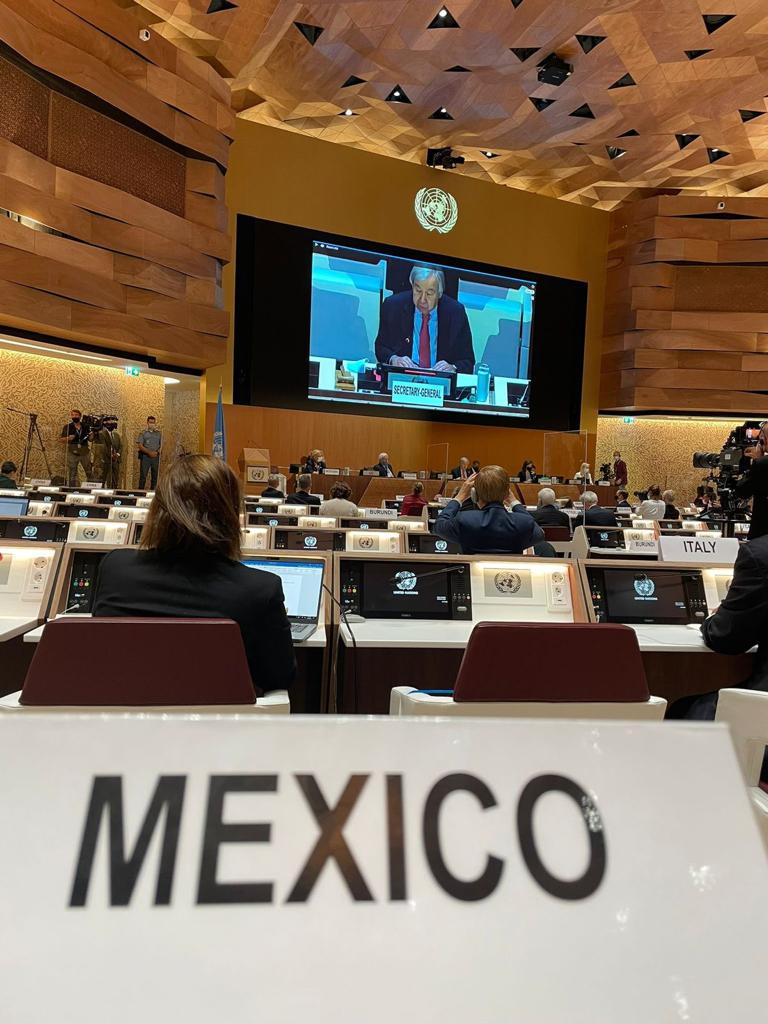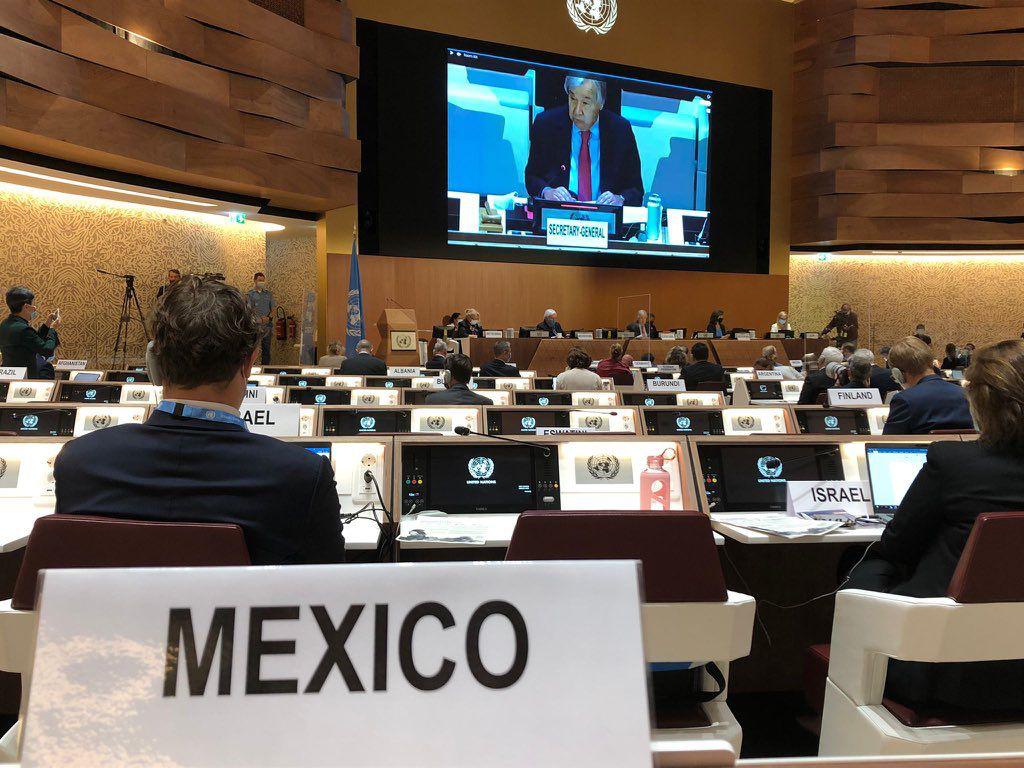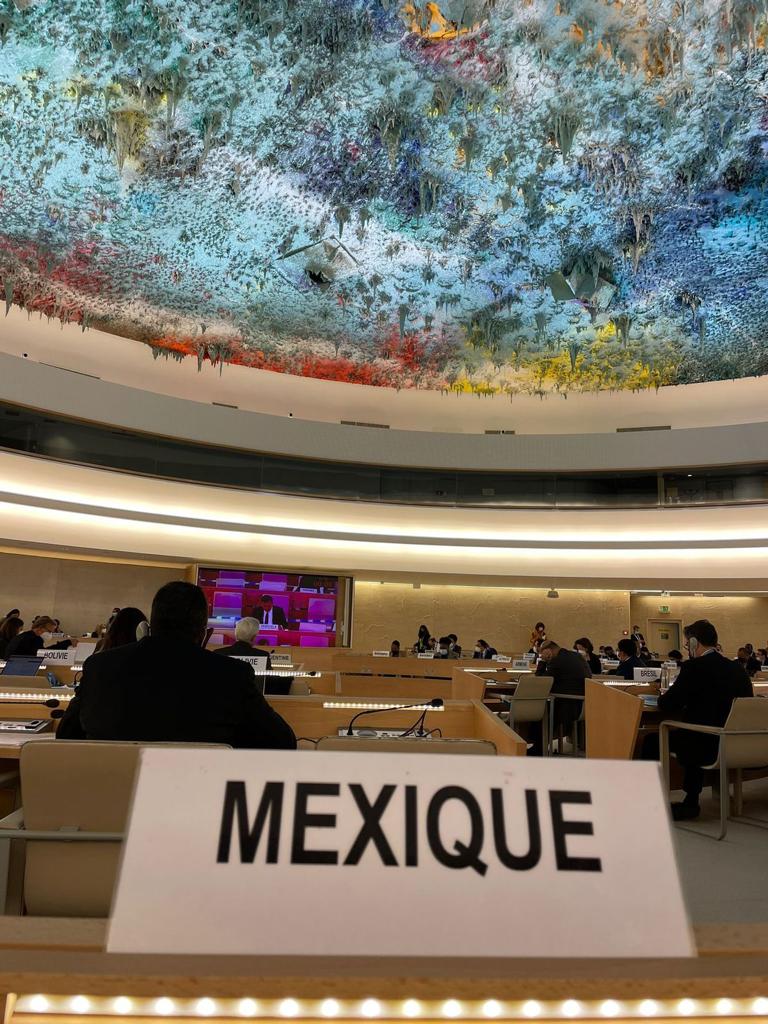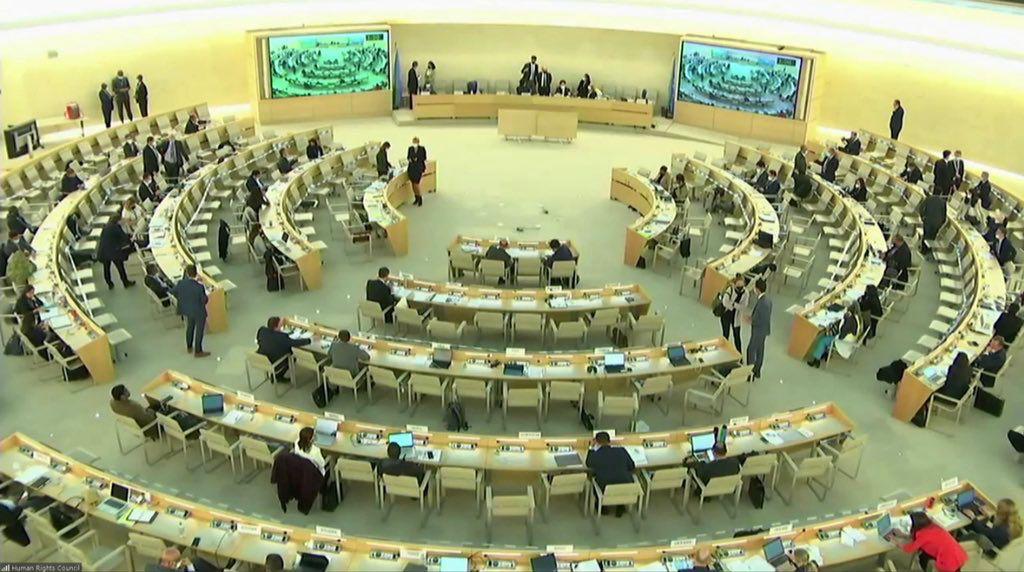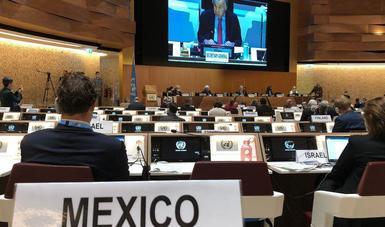• Mexico promoted three initiatives on human rights and indigenous peoples, the right to privacy in the digital age and the death penalty.
• Resolutions adopted on the right to a clean, healthy and sustainable environment, co-sponsored by Mexico, and the creation of a rapporteur on human rights and climate change.
• Mexico and Argentina promoted a joint declaration on the importance of the issue of care work in the human rights sphere.
Today, on October 11, Mexico's participation in the 48th regular session of the Human Rights Council (HRC), held at the United Nations (UN) headquarters in Geneva, Switzerland, came to a successful conclusion.
For more than four weeks, the HRC met to discuss and decide on key human rights issues, such as the consequences of child, early and forced marriage; the right to a clean, healthy and sustainable environment; and cooperation with the United Nations, its representatives and mechanisms in the field of human rights.
During this session, the HRC adopted 16 draft resolutions on issues such as the right to a healthy and sustainable environment; equal participation in political and public affairs; measures against racism and racial discrimination, xenophobia and related intolerance; the human rights of the elderly, and on a rapporteur for climate change and human rights. It also adopted nine resolutions on the human rights situation and technical assistance in specific countries such as Afghanistan, Libya, Syria and Cambodia.
The resolution on the right to a clean, healthy and sustainable environment was co-sponsored by 30 countries including Mexico. It marks a milestone in human rights and environment issues. Also of note is the resolution creating a rapporteur for human rights and climate change, who will submit reports to the Council on the effects of climate change on human rights. Mexico also supported this resolution.
Mexico promoted three resolutions: With Guatemala, one on human rights and indigenous peoples, which was adopted by consensus and co-sponsored by 38 countries from all regions. It continues the dialogue on the participation of indigenous peoples in the work of the Human Rights Council.
Together with a group of countries, Mexico also promoted the resolution on the right to privacy in the digital age, which was adopted by consensus. This resolution focuses on identifying the main risks of artificial intelligence to the human right to privacy and other related rights, including the right to non-discrimination, and calls on States and companies to consider their human rights obligations over the life cycle of new technologies.
The draft resolution on the death penalty is a biennial initiative, meant to foster a substantial discussion on the issue from a human rights perspective. This year, the resolution focused on the impact on human rights of transparency in the judicial process that leads to the death penalty and its application. This was also the subject of the latest report by the UN Secretary-General.
In addition, Mexico participated in interactive dialogues with the Special Rapporteur on the Rights of Indigenous Peoples, the Expert Mechanism on the Rights of Indigenous Peoples and the Special Rapporteur on the Human Rights to Safe Drinking Water and Sanitation, as well as debates on the level of representation of women in the human rights bodies and mechanisms.
Lastly, Mexico and Argentina promoted a joint declaration on the importance of the issue of care work in the human rights sphere, emphasizing the importance of adopting legal, institutional and political measures to eliminate the barriers to the personal, social and economic development of women and girls, and of discussing equality in the distribution of care work responsibilities, based on the principle of equality and non-discrimination.
Mexico is an active member of the Human Rights Council, and has been elected for a three-year period from 2022-2024. Its participation is part of its constructive foreign policy on human rights, conducted in full adherence to our constitutional principles and feminist foreign policy. With these actions, Mexico reaffirms its commitment to human rights.
For more information on the activities of the United Nations Human Rights Council, see: https://www.ohchr.org/en/hrbodies/hrc/pages/sessions.aspx.
